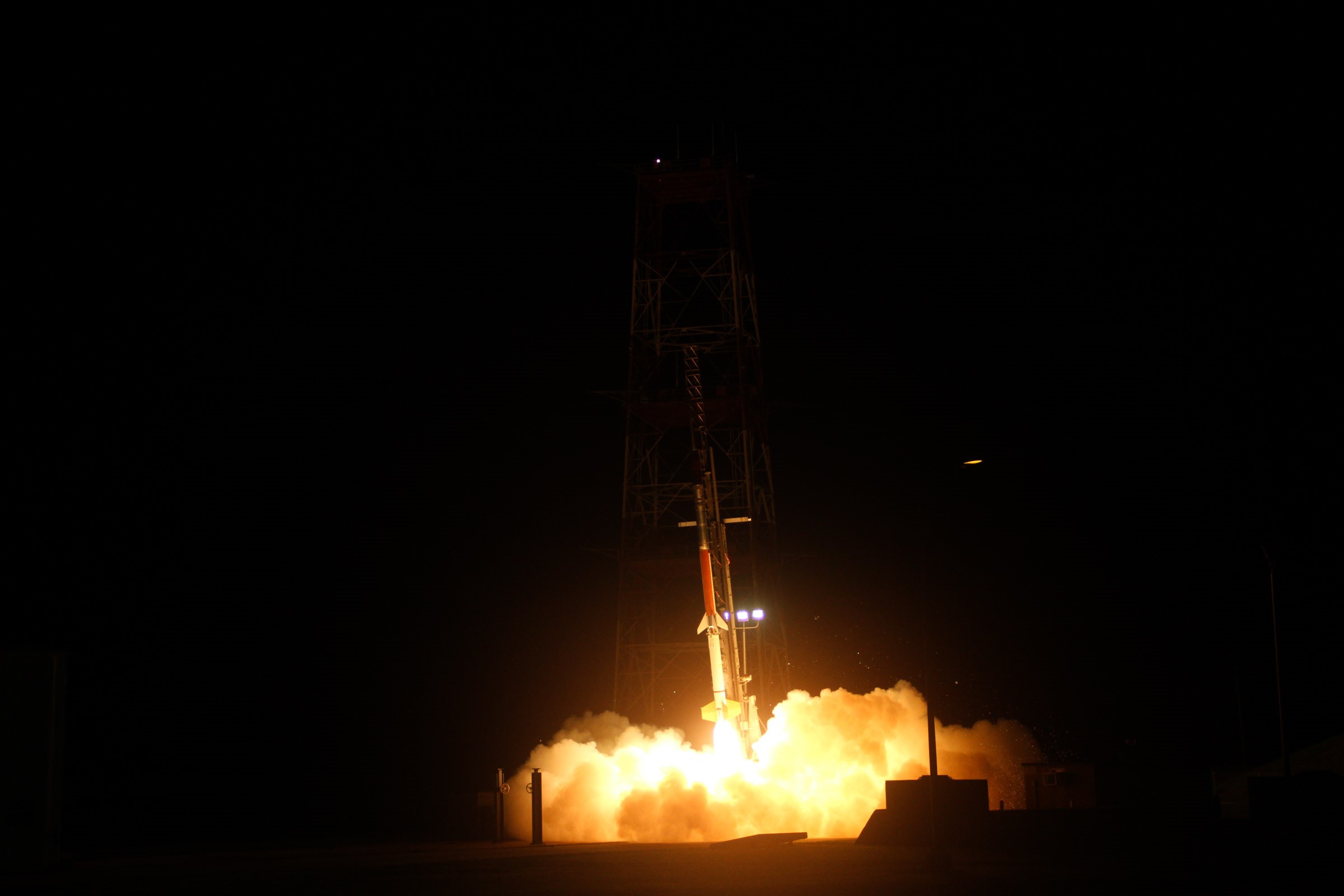
Roccor today announced that a collaboration with CU Boulder students successfully culminated in a deployment test of a Roccor boom aboard a sub-orbital launch of a NASA Terrier Improved Malemute sounding rocket. This rocket carried a payload package that successfully deployed a 2.6m boom in the harsh environment of space.
This successful demonstration proved the maturity of Roccor’s high-strain composite boom technology and provided Roccor with invaluable knowledge of the kinematics of strain driven deployments.
The launch took place early Sunday, August 13 from NASA Wallop’s Flight Facility. CU Boulder undergraduate students participating in the RockSat-11 team, a project through the Colorado Space Grant Consortium (COSGC), worked closely with experts from Roccor who provided mentoring and guidance throughout the design process, in addition to providing two booms. The project, which took just over 10 months to complete, featured the RockSat-11 team’s 15 lb. payload along with seven other experiments from seven universities across the United States and Puerto Rico.
Students monitored several environmental conditions of the boom, both before and during the flight including temperature and humidity. The payload was also equipped with two low-resolution cameras, which took still images of the boom, and two high-resolution cameras, which recorded video of Roccor’s boom deploying in space (and can be viewed here).
Through this partnership, Roccor helped COSGC to provide students with hands on educational experience and training that would not otherwise be available in the classroom. Roccor believes strongly in supporting educational outreach and mentorship for students, and currently employs two COSGC alumni.
In addition to this suborbital hardware, Roccor has already delivered five spaceflight deployable systems for use on US Government orbital programs. The current work backlog and launch manifest should see Roccor having flown 25 spaceflight deployable systems on a cubesat and ESPA class satellites by the summer of 2018.




